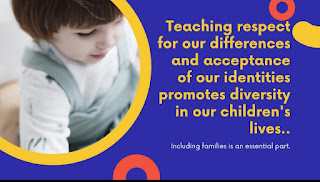The play: supporting child and brain development
 |
Academics vs play
If you have the opportunity to observe young children you notice they learn differently even more differently from older children and adults. Their sense of the world depends on play, exploration, and imagination. Focusing early childhood education only on specific academic skills creates cognitive, socioemotional, and physical harm while it is counterproductive for their development and learning. The elimination of play in the lives of young children damages their physical and mental well-being.The intention here is not to suggest an early childhood center dedicated just to free play without guidance and structure. The real intention is to promote educational practices integrating play into the early childhood curriculum. Meaning that free play and playful learning compose the unity of high-quality education for children.
Why play is so important?
Research has pointed out the benefits of play in the holistic development of children. Some of them are:🔺development of cognitive and oral language skills
🔺foster their motivation for future learning
🔺encourage social competence
🔺promote children’s cognitive achievements and school readiness
🔺enhance self-regulation of behavior, attention, and emotion
🔺promote socio-emotional skills
🔺need a certain amount of self-directed free play – including
🔺promote physical movements
🔺minimize feelings of being overstressed, underexercised, anxious, and overweight
Play and healthy brain development
After the baby is born and in the years between birth and early 20s, the brain develops almost 75 percent. Play stimulates the brain making connections and helping to develop gross and fine motor skills. Research has shown children who use their imagination are more creative and productive adults. Play develops the brain's executive functions allowing children to control their emotions which results in self-control and self-discipline. A well-developed executive function helps children to do well in school, share with others, make good decisions, and increase tolerance and compassion for other people.Addressing play into the early childhood curriculum
One way to bring play back to early childhood classrooms is to inform people, including parents, teachers, administrators, policymakers, politicians, and government agencies about the benefits of play in high-quality early childhood education. Findings in research need to be applied to advocate favoring play in early childhood curricula focusing on a design including play-based practices and academic instruction, like for example, narrative- and play-based storytelling and story-acting practice, among others.The early childhood curriculum entails more than packages of policies. The early childhood curriculum based on play involves experiences in the setting, including the way they are greeted, how the environment is organized, how they are expected to behave towards each other, how adults behave towards them, and what behaviors are encouraged, tolerated, ignored, or banned. So, to be effective, it requires integrating play-based, playful, and creative approaches to teaching and learning being inclusive to all children's needs, experiences, and diversity.
References
Nicolopoulou, A. (2010). The Alarming Disappearance of Play from Early Childhood Education. Human Development, 53(1), 1–4. https://doi.org/10.2307/26764938
Psych Central. (2018, October 8). The Benefits of Play. https://psychcentral.com/lib/the-benefits-of-play/
Psych Central. (2018, October 8). The Benefits of Play. https://psychcentral.com/lib/the-benefits-of-play/
"PLAY IS OUR BRAIN'S FAVORITE WAY OF LEARNING."
-Diane Ackerman
_______________________
Diana A. Rivera is an Early Childhood Educator, with graduate studies in Educational Psychologist, and author of Be the voice for children. Diana believes and commits to the healthy development, growth, well-being, and learning of all children. The blog posts share ideas and knowledge about educational psychology, child and brain development, parenting, diversity, effective teaching practices, early childhood education, and care to support the empowerment of children and families.










